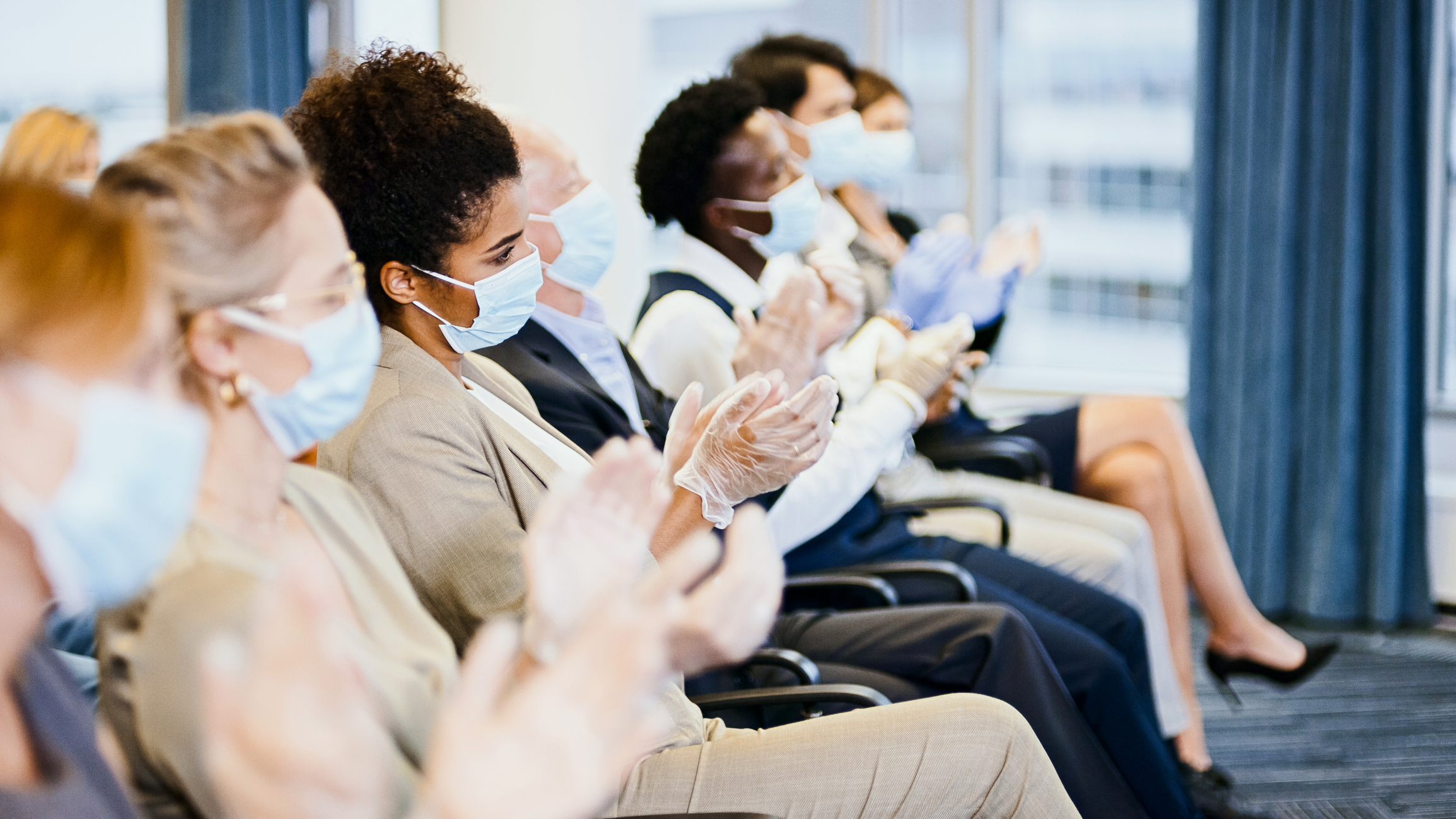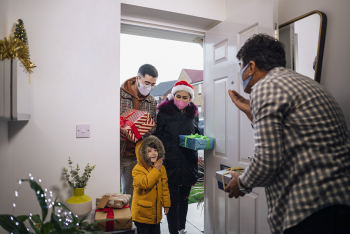Long COVID refers to a range of persistent symptoms that can linger for weeks, months or years after...
Read MoreEffective Monday, January 5th, Inspira Health is now at Yellow Alert Status: Masks for staff, patients and visitors in all high-risk areas across our facilities are strongly recommended.


It’s true: The Centers for Disease Control and Prevention (CDC) says that fully vaccinated individuals can return to some pre-pandemic activities, like being unmasked around other vaccinated individuals. Still, there are some instances where wearing a mask is essential. Here’s what to know.
If you are fully vaccinated against COVID-19, being unmasked around other vaccinated individuals is considered a low-risk activity. Why? Because you are less likely to contract COVID-19 from someone who also has vaccine-induced immunity to the virus. In addition, even if you do contract the virus, you’re less likely to experience severe symptoms than those who are unvaccinated.
“The goal of getting vaccinated is not to have complete immunity to the virus. Really, it’s to strengthen your body’s defenses so if you do contract the virus, your symptoms will not be as severe or as deadly compared to someone who is not vaccinated,” Evelyn Balogun, MD, Medical Director of Urgent Care, Employee Health and Occupational Medicine for Inspira Health.
According to the CDC, you are considered fully vaccinated two weeks after the second dose in a two-dose vaccine, like Pfizer or Moderna, and two weeks after a single-dose vaccine, like Johnson & Johnson.
If you are fully vaccinated and around unmasked people who may or may not be vaccinated, it’s a good idea to still wear a mask. Masks can protect you in situations including:
If you are not vaccinated against COVID-19, it is not safe to be unmasked around other people. Not only are you at high risk of contracting COVID-19, but also spreading the virus to others.
“Unvaccinated people are extremely vulnerable to the virus – particularly the Delta variant – because the immune system has no prior experience battling the virus that causes COVID-19. How the body will respond is completely unpredictable,” said Dr. Balogun.
It is appropriate to wear a mask whenever there is a risk of transmission, including:
Regardless of your vaccination status, data shows that anyone wearing a mask is protected against aerosolized COVID-19 particles to some degree. “Wearing a mask stops exhaled particles from entering the shared airspace and, according to the CDC, it also can protect you from inhaling up to 65 percent of particles generated by a single cough — even when you’re around unmasked individuals,” said Dr. Balogun.
The bottom line is that wearing a mask is something we should all continue to do to protect ourselves and our loved ones. “Remember to wear a mask that has three or more layers and fits snugly around your nose and mouth” said Dr. Balogun.

Long COVID refers to a range of persistent symptoms that can linger for weeks, months or years after...
Read More
A Very COVID Christmas: How to Celebrate Safely
Read More
After more than two years of masks, social distancing and travel restrictions, this winter is likely...
Read More